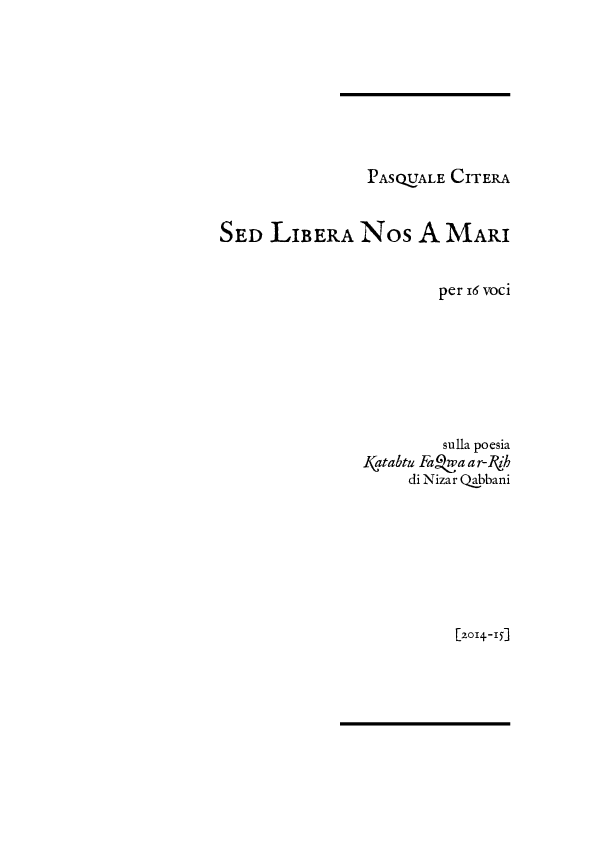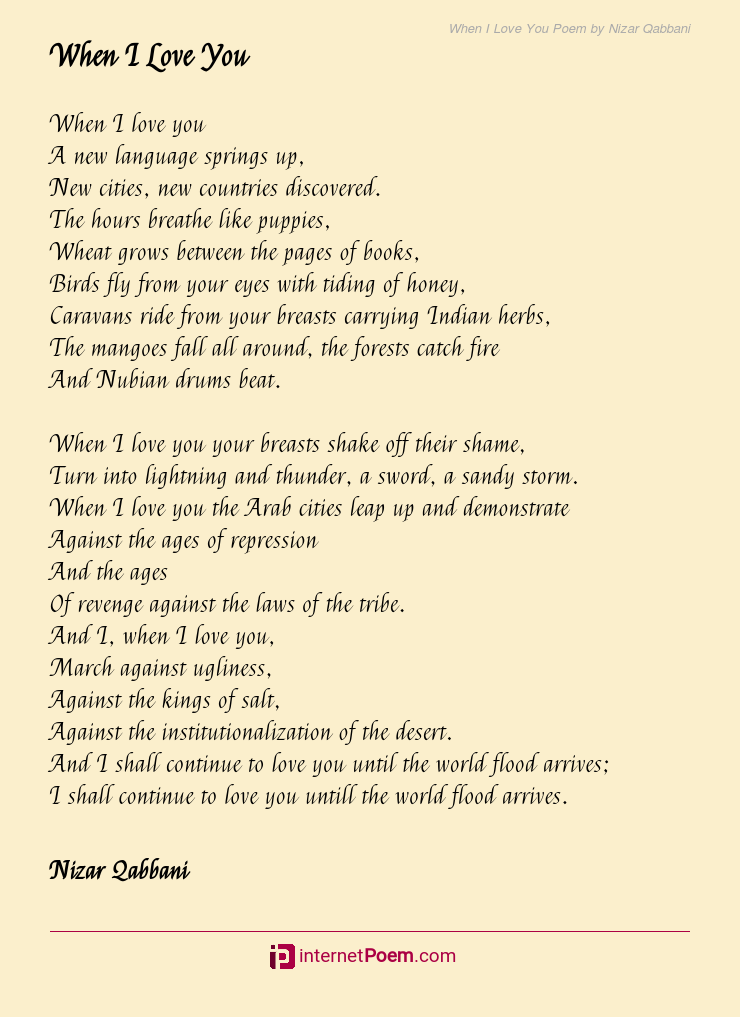

In addition to straight- forward love poetry, or ghazal, we find mystical poems and elegies. Such expressions of yearning occur in a wide variety of genres. Instead, in an effort to lend coherence to the anthology and to appeal to the lay reader, I have selected poems reflecting sentiments of desire or longing, poems whose most immediate meanings transcend the limitations of time and space. It does not claim to offer a representative sampling, however. This anthology attempts to capture the breadth and depth of the Arabic poetic legacy through its inclusion of pieces composed from pre-Islamic times through to the twenty-first century. Even today,it has pride of place in the public domain, engaging the elites and the masses in equal measure, albeit in different registers. When scholars and scribes of the second and third Islamic centuries (ninth and tenth centuries, ce) began to record this inheritance in writing, it served as an important foundation forknowledge. Poetry not only entertained and delighted, it also served to memorialize individuals, communities and events. In its early stages it formed part of an oral tradition, and there were systematic and collective efforts to transmit it to later generations. Mahmoud Darwish, “A Lesson from Kama Sutra”Īrabic poetry is as vast as it is deep, encompassing all manner of poetic expression from Morocco to Iraq and spanning more than fifteen centuries. Mahmoud Darwish, “We were Missing a Present” Nizar Qabbani, “I want to make you a unique alphabet” Nizar Qabbani, “I want to write different words for you” Jibran Khalil Jibran, “Of Happiness and Hope”Ību al-Qasim al-Shabbi, “The Will of Life”

Ibn Nubata al-Misri, “I have renounced and given up all speech sublime” Ibn al-‘Arabi, “The tombs of those who loved them” Ibn al-‘Arabi, “As night let its curtains down in folds” Hafsa Bint al-Hajj, “Those lips I praise” Qasmuna Bint Isma’il, “Seeing Herself Beautiful and Nubile” Wallada, “Must separation mean we have no way to meet?”

‘Ulayya Bint al-Mahdi, “Three Love Epigrams”Īl-Ma’arri, “Some Power troubled our affairs” Rabi’a al’-Adawiyya, “Two ways I love Thee”Ību Nuwas, “O moon called forth by lament”Ību Nuwas, “She sent her likeness stealing in dream” Umar Ibn Abi Rabi’a, “Ah for the throes of a heart sorely wounded!” In their evocations of heroism, nostalgia, mysticism, grief, and passion, the poems gathered here transcend the limitations of time and place. Here too are literary giants of the past century: Khalil Jibran, author of the best-selling The Prophet popular Syrian poet Nizar Qabbani Palestinian feminist Fadwa Tuqan Mahmoud Darwish, bard of occupation and exile acclaimed iconoclast Adonis and more. Poets include the legendary pre-Islamic warrior ‘Antara, medieval Andalusian poet Ibn Zaydun, the mystical poet Rabi‘a al-‘Adawiyya, and the influential Egyptian Romantic Ahmad Zaki Abu Shadi. Themes of love, nature, religion, and politics recur in works drawn from the pre-Islamic oral tradition through poems anticipating the recent Arab Spring.Įditor Marlé Hammond has selected more than fifty poems reflecting desire and longing of various kinds: for the beloved, for the divine, for the homeland, and for change and renewal. The Arabic poetic legacy is as vast as it is deep, spanning a period of fifteen centuries in regions from Morocco to Iraq.

A bilingual anthology of poems from the sixth century to the present, Arabic Poems is a one-of-a-kind showcase of a fascinating literary tradition.


 0 kommentar(er)
0 kommentar(er)
